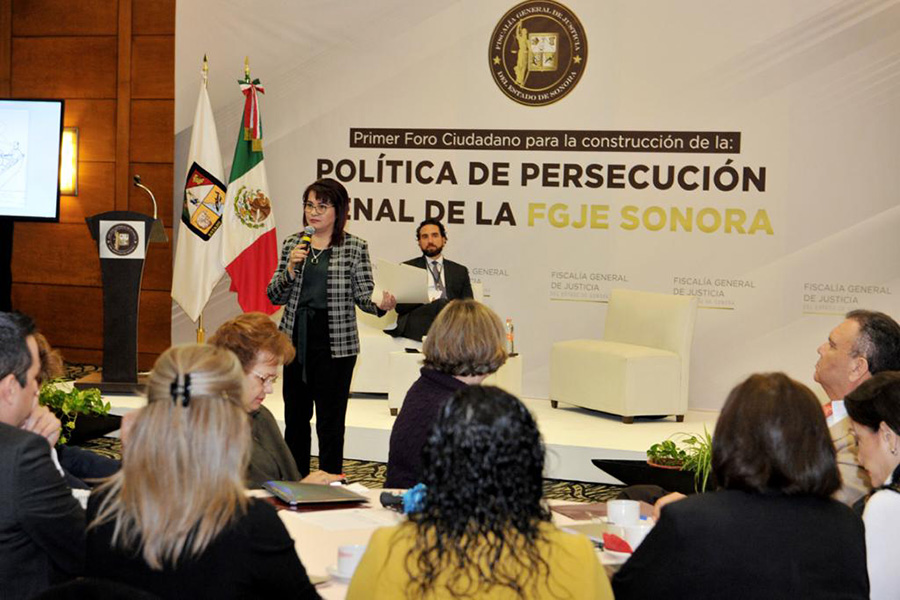Mexico—Programa para el Fortalecimiento de Instituciones de Justicia Penal Estatal (ConJusticia)
Client: U.S. Agency for International Development
Duration: 2020-2025
Region: Latin America and the Caribbean
Country: Mexico
Solutions: Governance
Over the last 10 years, the Government of Mexico introduced major reforms to improve the effectiveness, transparency, accessibility, and fairness of its criminal justice. However, its implementation has proceeded slowly and unevenly at the national and state levels. The lack of results of the reform and continued levels of impunity throughout Mexico have reduced citizen confidence in the government and called into question the legitimacy of the justice system. With high levels of violence and organized crime, and more than 30,000 homicides in 2019 alone, it is imperative that Mexican justice sector actors and citizens work together to make their communities safer and to ensure the rule of law is enforced. While the challenges are immense, there are opportunities as some states have shown a commitment to advancing the justice reform process and are eager to make progress toward reducing impunity and improving trust in their state-level institutions.
The Programa para el Fortalecimiento de Instituciones de Justicia Penal Estatal (ConJusticia) consolidates and sustains recent justice system reforms by supporting state-level attorneys general offices and justice courts, with an emphasis on promoting collaboration and durable partnerships between these entities and other justice sector and local actors. These mutually supportive partnerships will enhance Mexico’s capacity to prosecute high-priority crimes—including high-impact and serious crimes—and reduce impunity.
Alongside our subcontractors Fortis, Rapid Results Institute, and the Metropolitan Group, DAI is ensuring that ConJusticia works with engaged, committed local partners, adapting our assistance to their particular needs as those needs change over time. In consultation with these state-level justice actors and community stakeholders, we will define project interventions that are responsive to their level of capacity and in line with their political will so that ConJusticia’s activities are more likely to be viable, locally owned, and sustainable.
After five years, ConJusticia, in close coordination with other U.S. Agency for International Development activities, will deliver a marked improvement in prosecution rates of high-level, serious, and high-priority crimes that will result in improved citizen perceptions regarding the justice sector’s ability to address crime and violence and protect the most vulnerable.

Sample Activities
- Play a facilitative role to help state-level actors advance their own goals, helping them identify the improvements that they have the capacity to implement and are committed to sustaining, aligned with the Journey to Self-Reliance.
- Strengthen the capacity of attorney general offices to prioritize cases based on criminal prosecution prioritization frameworks.
- Support internal processes and management of attorneys general offices and courts.
- Improve communication, transparency, and accountability of justice sector institutions through proactive engagement with users and the public.
- Engage private sector, civil society, and other relevant local organizations to identify problems and results together with justice system stakeholders and promote strengthened mechanisms for inter-institutional collaboration.
Select Results
- Worked with four states to implement criminal prosecution policies, with the participation of more than 100 people, from academia, the private sector, and civil society.
- Assisted attorney general offices with 5,509 cases through improved investigation methodologies.
- Helped solve almost 5,000 criminal cases solved through technical assistance.
- Developed 76 tools and management systems that have been adopted by criminal justice institutions to improve caseload distribution, data and information management, and resource allocation.
- Attended 185 cases of gender-based violence.
- Developed 63 security plans to protect victims from possible violence on the part of aggressors while their cases are being attended.
- Established task forces in four states to address emergent criminal phenomena in: fraud in vehicle resale and crimes against privacy; home robbery, where there was a 69 percent increase in case resolution and 1,184 percent increase in reparations to victims compared to those issued during the same period in 2021; cardholder theft, where task forces opened 26 investigations, identified 17 suspects, and requested seven arrest warrants for the criminal cell’s most prominent members; and femicide, where task forces improved their investigative action time and forged new collaboration methodologies among investigation units.
- Increased efficiency for solving non-priority crimes by 521.15 percent.
- Trained 227 actors of the state justice system, from seven states, in strategic criminal prosecution.
- Helped the Mexican Laboratory for Innovation in Criminal Justice establish a methodology and digital platform to document, disseminate, and exchange information on innovations for the transformation of Mexico’s criminal justice system.
- Assisted justice operators in scaling a successful innovation developed with previous USAID support called Alerta Naranja, which provides a tech tool for inter-institutional collaboration that reduces the time of first responders to calls of domestic violence. Alerta Naranja has resulted in significant reductions in response time, from 42 minutes to 21 minutes on average in one area.
RELATED CONTENT:
Ukraine—Establishment and Management of the Secretariat to the Audit Board
DAI provides technical assistance to the European Union to ensure the effective, efficient, and transparent management of funds for Ukraine’s reconstruction.
Read More